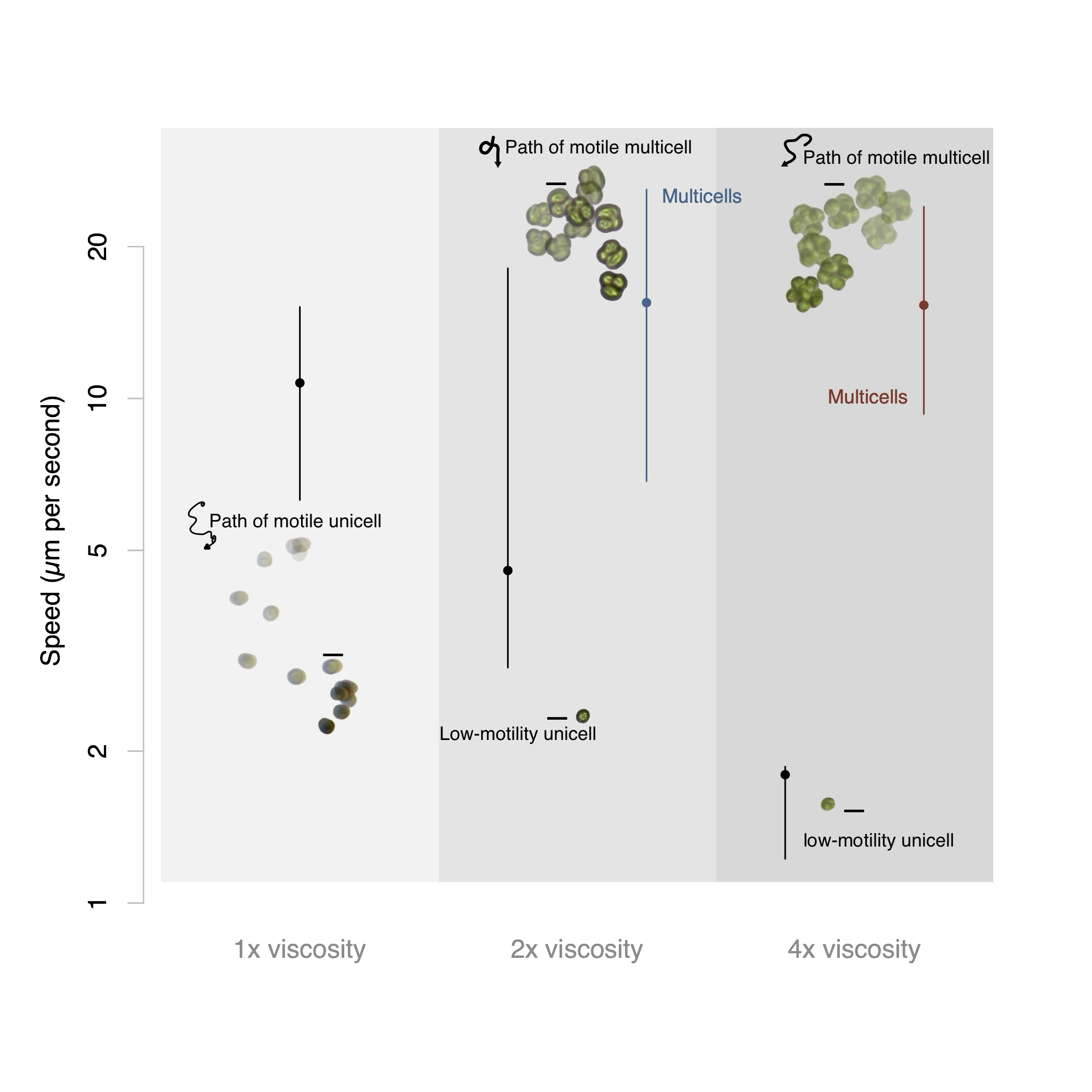Experimental snowball earth viscosity drives the evolution of motile multicellularity
Halling, A., Goodson, B., Hirschmann, A., Wing, B. A., and Simpson, C., 2024. Experimental Snowball Earth Viscosity Drives the Evolution of Motile Multicellularity. bioRxiv. doi.org/10.1101/2024.02.06.579218

During the 70-million-year span of the Cryogenian Snowball Earth glaciations, low ocean temperatures beneath global sea ice increased water viscosity up to fourfold. In the absence of adaptation, unicellular organisms living in this viscous environment were limited in their ability to move and acquire nutrients. We experimentally test the hypothesis that multicellularity evolved in order to overcome this viscosity-induced metabolic deficit. In the presence of Snowball Earth viscosities, we find that populations of unicellular green algae evolve motile multicellular phenotypes in addition to other phenotypes that optimize different combinations of size and speed. As the Snowball Earth subsided and warm seas returned, the novelty of motile multicellularity permitted these organisms to take physical control over their local environment for the first time. This innovation may underpin the evolution of dominant multicellular lineages on Earth today.